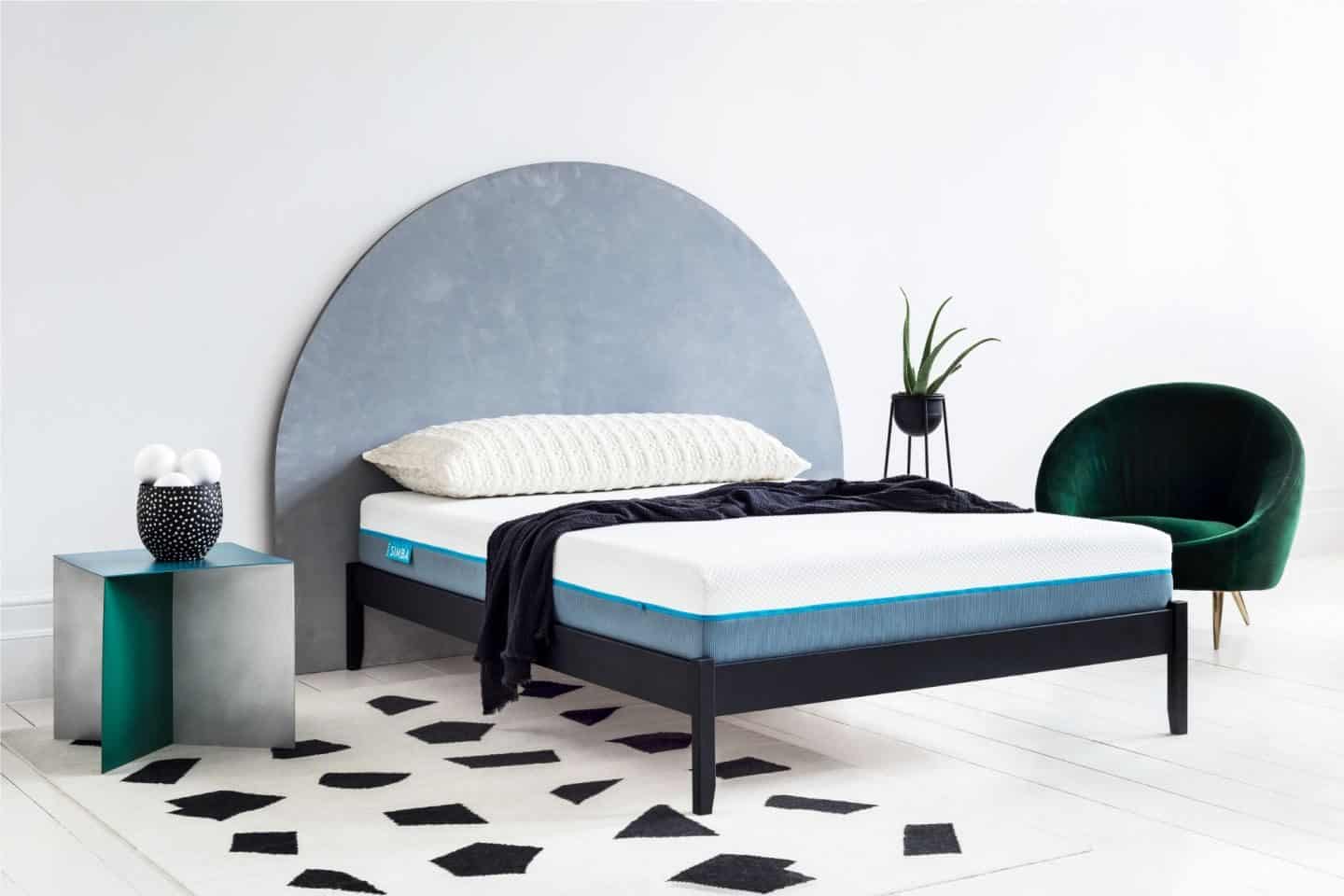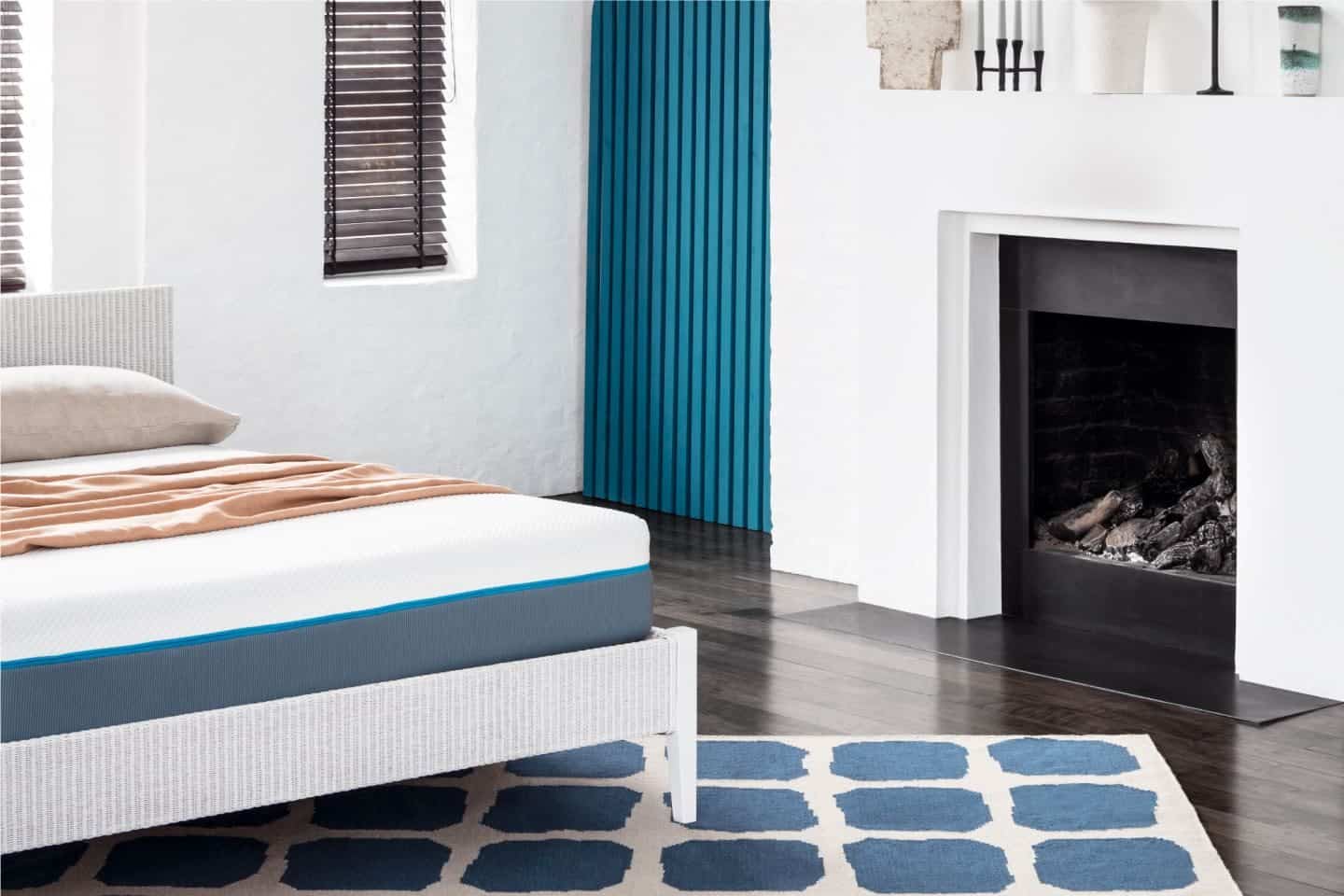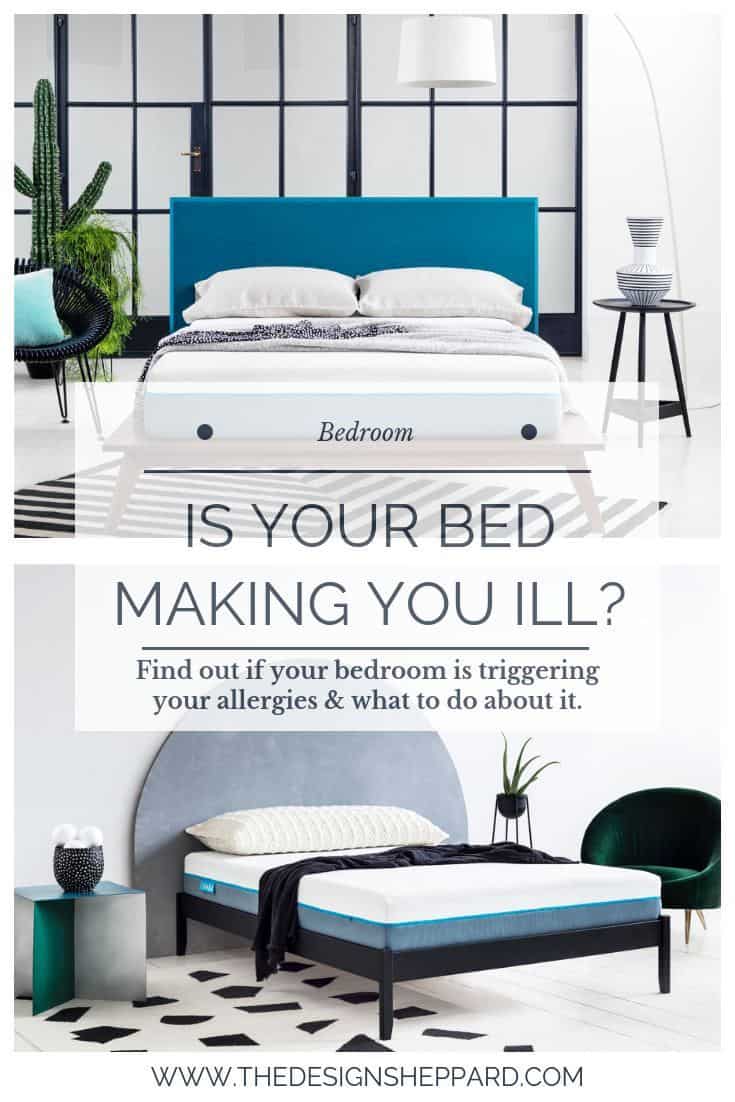
Hands up if you have an allergy. Me…I do! I’ve suffered with asthma since I was about seven years old and I’ve had hay fever since becoming pregnant five years ago. My asthma used to be really bad as a child and I was even hospitalised a few times. The main trigger was animal dander, which as you can imagine was pretty hard to avoid outside my own home.
Most of my friends and family had dogs or cats and I didn’t even need to come into physical contact with the animals to get sick. Simply sitting on a sofa that was covered in cat hair was enough to set me off. My eyes would get all red and itchy and puff up until I could hardly see, my nose would drip like a tap, my throat would get extremely sore and itchy and my windpipe would contract so much that I could barely breathe, leading to some serious wheezing. It was very unpleasant.
I have also weirdly started to get hay fever recently. I never suffered from hay fever before becoming pregnant. It started completely out of the blue five years ago when I was expecting my first child. I didn’t know that you could suddenly get hay fever like that but apparently, it’s quite common after pregnancy. Or at least I’ve spoken to a few mums who have experienced the same.

According to Allergy UK, we have some of the highest rates of allergic conditions in the world here in the UK and a 2010 poll of more than 1,000 people, from market analyst Mintel, found that 44% of British people have an allergy, with 48% of those suffering from more than one.
Allergies are becoming increasingly common with figures for those suffering from asthma, eczema and hay fever on the rise. And sadly, Allergy UK has identified that a large proportion of allergy sufferers (12 million people) actually experience something called ‘Home Fever’. With symptoms that are similar to hay fever, home fever is a condition that is triggered by allergens such as dust mites, moulds, cleaning products and pets that are present in the home. These allergens are present all year round and the most commonly reported symptoms of home fever are a runny nose, sneezing and itchy eyes.
For those of us unlucky enough to be allergic to our homes, the bedroom seems to be the place where people suffer most. Our beds are prime allergen territory as they can harbour up to two million house dust mites and the average pillow can double in weight over a period of six months due to dust mite faeces. That is utterly disgusting and from now on I will be weighing my pillows regularly and washing them far more often. I feel sick just thinking about that!
It is the house dust mites that cause us a problem. These microscopic little beasties thrive in warm, damp conditions and feed on dead human skin cells. So it’s easy to see how our mattress (affiliate) and bedding provides the perfect living conditions for them. Male dust mites live for about 20 days while females can survive for up to 70 days, during which time they can lay up to 100 eggs. But it is actually the allergens in their droppings that are harmful to our health. As we breathe them in it triggers the allergic reaction.

For most allergy sufferers, reducing the number of house dust mites in our homes is the best course of preventative action. There are a number of things that we can do to keep these little mites at bay. Obviously washing our bedding regularly is paramount and the recommendation is to do this once a week or at least once a fortnight. Washing bedding at 60c is guaranteed to kill house dust mites.
It’s also important to reduce the humidity in the bedroom. Make sure you open windows to let fresh air circulate. Turn the thermostat down as well, and as an added bonus a cooler bedroom also helps to aid a more restful night’s sleep. Also, try not to make your bed straight away when you get up in the morning. Doing so will trap heat and moisture in the bed, which the dust mites will love! Instead, air the bedding out a little and leave the covers folded back to let the heat escape.
Reducing dust is, of course, important so make sure you dust and vacuum regularly. This includes any curtains or blinds you may have in the bedroom as well as carpets and furniture. Dusting with a damp micro-fibre cloth helps to trap the dust and reduce the chance of wafting it into the air. You should also vacuum your mattress (affiliate) regularly. The NHS suggests this should be done at least once a fortnight. According to The Sleep Council, the average adult loses 284ml of fluid each night and sheds around 520g of dead skin over the course of a year, much of which ends up in our beds. Again, eeeewwww!!!!
So it’s obviously a good idea to clean your mattress (affiliate) regularly. This can be done by sprinkling baking soda over the mattress, leaving it for an hour and then vacuuming it off with the upholstery attachment of your vacuum cleaner. For particularly stubborn stains you can use a mixture of water and baking soda and gently dab at the stain with a clean cloth or sponge. Some mattresses, like the Simba Sleep Hybrid Mattress (affiliate), come with a cover that can be zipped off and popped into the washing machine on a 40c cycle. Cleaning it couldn’t be easier.
If your mattress is past its best you really should think about changing it though. The Sleep Council recommends replacing your mattress every seven years. After this time, it will have been subjected to over 20,000 hours of wear and tear, not to mention all the fluid and dead skin it contains. If that doesn’t convince you to change your mattress I don’t know what will.
Regardless of whether the mattress is still comfy and providing you with a restful night’s sleep, it’s important to think of all the allergens that could be thriving inside. If you are regularly waking up with itchy eyes, a runny nose, sneezing, coughing, or wheezing, don’t just assume you have a cold or cough. It might just be that your old mattress (affiliate) is making you poorly.
Don’t forget to pin this post for later!


As much it makes for uncomfortable reading it’s a great awareness post Stacey and one that we should all take heed of! Just the thought of all those little critters makes your skin crawl lol. I don’t have any allergies and neither do my family, but boy does this reinforce the need to change our mattress!! Best get cracking with our bedroom asap!! :D xx
It’s actually made me a bit paranoid Maria. I’ve had to set a reminder on my phone so I remember to wash the bedding super regularly. I’ve also just received new pillows and a new mattress arrives next week. Researching this really made me feel gross. I can;t bear the thought of sleeping on a pillow full of faeces, even if we can’t see them!
Some fantastic tips here Stacey! My daughter has struggled with Eczema since she was born and is now at risk of asthma and we were told by dermatologists to look at her sheets too! What they’re washed in, no cheap scratchy materials etc. She can’t wear cardigans or woolly textures so 100% on board with paying more attention to what we expose our skin to!
Oooooh Karen, eczema is so nasty. My little one suffered with it for a little while but it’s thankfully cleared up now. But I felt so bad seeing her in so much pain and so itchy. It’s definitely worth closely examining everything that comes into contact with our skin!
This is very interesting Stacey… I not only have sensitive skin but I do suffer heavily from allergies and I never once thought that my mattress could be a contributing factor!
Me neither, it never crossed my mind. But now I’m on it. Have ordered a new mattress and will be looking into mattress protectors. I’m also going to hoover the mattress regularly and wash the pillows a lot more often. This has proper grossed me out!
Oh wow that is making me feel quite ill just reading about it! I have hayfever and asthma and that is super unlucky that you have got it after being pregnant, so unlucky. Great tips xx
Definitely something to consider Becky. It honestly never occurred to me that my mattress and bedding could be making my allergies worse!
Sleeping well is so important for your health so best to ensure you have a healthy environment to sleep in.
Absolutely Fiona. I never really thought about it until researching this post but now I’m super on it. The thought of pillows full of poo is just so gross!
Food for thought… I have bad asthma and it’s always worse at night but I’ve never put two and two together…
It’s so obvious when you read something like this but it never occurred to me either Abi. Hopefully you can try a few of these tips and see if it makes any difference!
👍 Thank you for the post!
My pleasure Maria, always good to share the knowledge, especially if it can help people with health problems.
I have to say, this post made for some uncomfortable reading. No one wants to hear these kind of statistics, right? Bottom line: change mattress and your pillows often!
Yes, I was proper grossed out by all this Jenny. I’m definitely going to be cleaning and airing my new mattress more often and pillows will be replaced very frequently and washed super often!
Very interesting mostly as I recently started sneezing a lot around the house! Need to do a deep mattress clean!
Could be a touch of home fever Claire. I imagine it will get worse for us all in winter too as we will spend more time indoors with less air circulating around. Hope you find a solution soon!
So interesting to read all this Stacey thank you for sharing – the mattress with washable cover sounds a great idea !
It does , doesn’t it? So much easier to clean. I’ve just received pillows with washable covers too and I feel so much better about that.